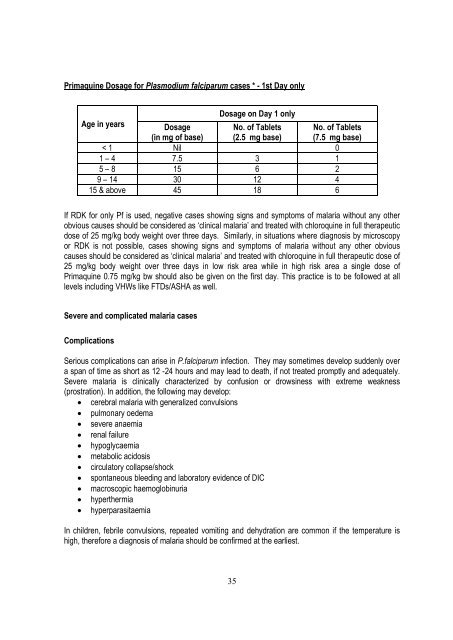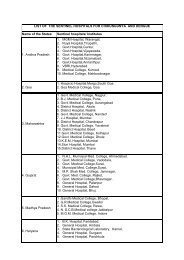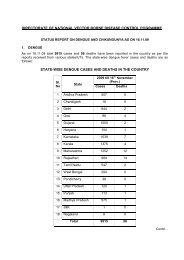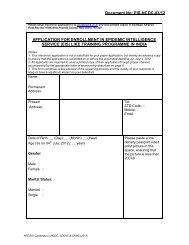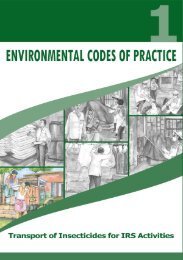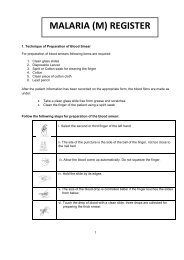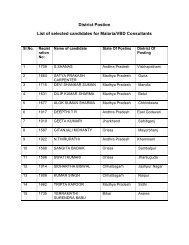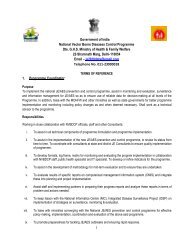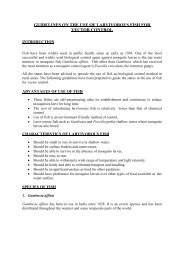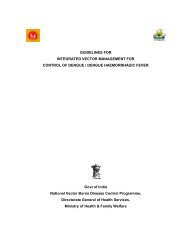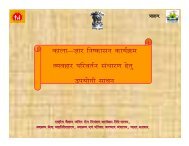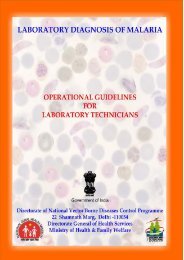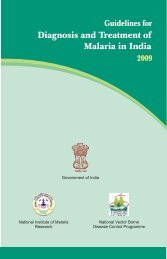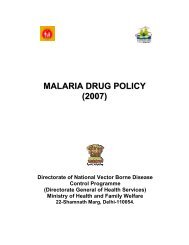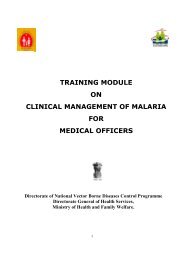training module for medical officers primary health centre - NVBDCP
training module for medical officers primary health centre - NVBDCP
training module for medical officers primary health centre - NVBDCP
- No tags were found...
Create successful ePaper yourself
Turn your PDF publications into a flip-book with our unique Google optimized e-Paper software.
Primaquine Dosage <strong>for</strong> Plasmodium falciparum cases * - 1st Day onlyDosage on Day 1 onlyAge in years Dosage(in mg of base)No. of Tablets(2.5 mg base)No. of Tablets(7.5 mg base)< 1 Nil 01 – 4 7.5 3 15 – 8 15 6 29 – 14 30 12 415 & above 45 18 6If RDK <strong>for</strong> only Pf is used, negative cases showing signs and symptoms of malaria without any otherobvious causes should be considered as ‘clinical malaria’ and treated with chloroquine in full therapeuticdose of 25 mg/kg body weight over three days. Similarly, in situations where diagnosis by microscopyor RDK is not possible, cases showing signs and symptoms of malaria without any other obviouscauses should be considered as ‘clinical malaria’ and treated with chloroquine in full therapeutic dose of25 mg/kg body weight over three days in low risk area while in high risk area a single dose ofPrimaquine 0.75 mg/kg bw should also be given on the first day. This practice is to be followed at alllevels including VHWs like FTDs/ASHA as well.Severe and complicated malaria casesComplicationsSerious complications can arise in P.falciparum infection. They may sometimes develop suddenly overa span of time as short as 12 -24 hours and may lead to death, if not treated promptly and adequately.Severe malaria is clinically characterized by confusion or drowsiness with extreme weakness(prostration). In addition, the following may develop: cerebral malaria with generalized convulsions pulmonary oedema severe anaemia renal failure hypoglycaemia metabolic acidosis circulatory collapse/shock spontaneous bleeding and laboratory evidence of DIC macroscopic haemoglobinuria hyperthermia hyperparasitaemiaIn children, febrile convulsions, repeated vomiting and dehydration are common if the temperature ishigh, there<strong>for</strong>e a diagnosis of malaria should be confirmed at the earliest.35


